Governance and Civics Worksheets for Ages 3-5
6 filtered results
-
From - To
Introduce your young learners to the exciting world of governance and civics with these specially crafted worksheets for ages 3-5. Our engaging activities simplify important concepts, making it easy for preschoolers to grasp the basics of community roles, responsibilities, and leadership. Each worksheet is designed to blend learning with fun, using colorful illustrations and interactive tasks to keep little minds captivated. Help your child discover the foundations of good citizenship and government in an age-appropriate manner, encouraging a love for social studies from the very start. Unlock their potential with our comprehensive and enjoyable educational resources.
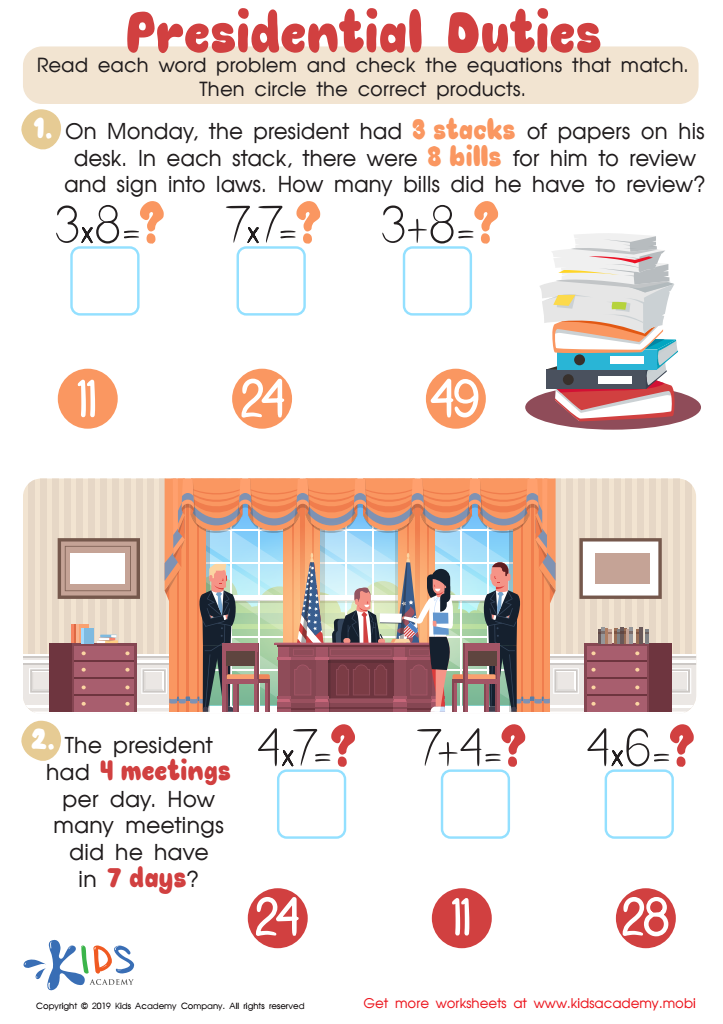

Presidential Duties Worksheet
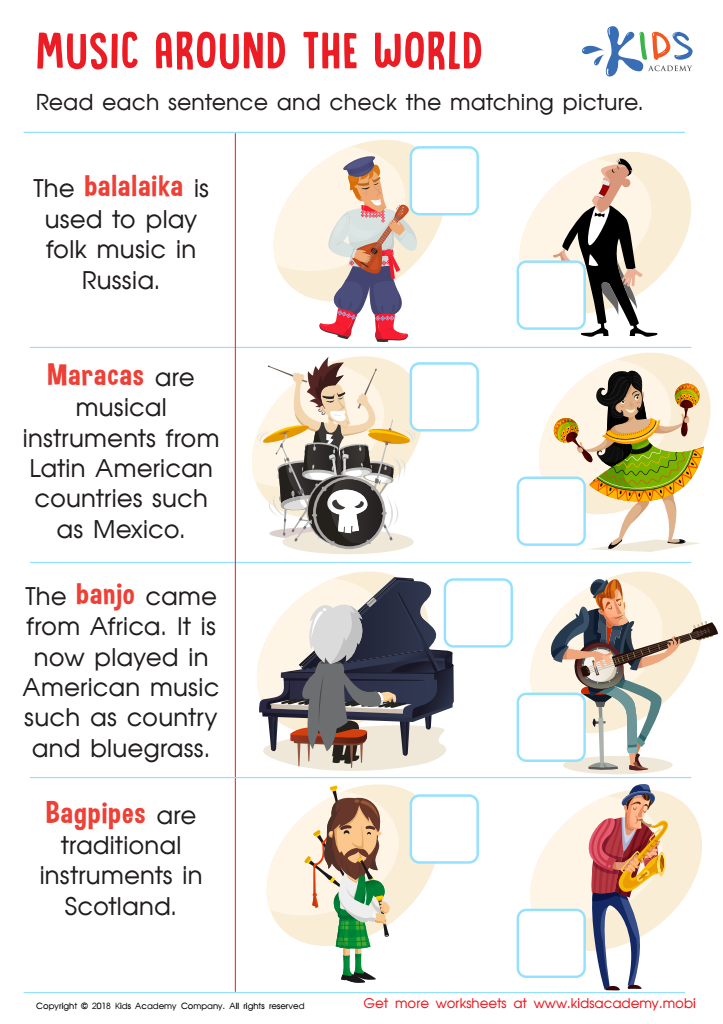

Music Around the World Worksheet
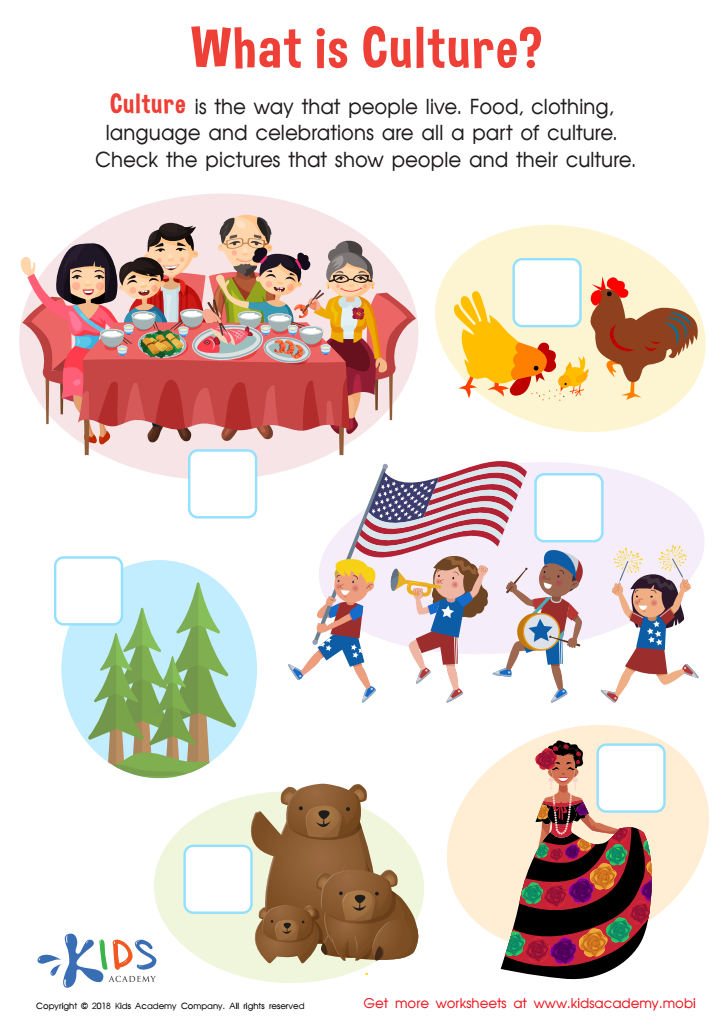

What Is Culture? Worksheet
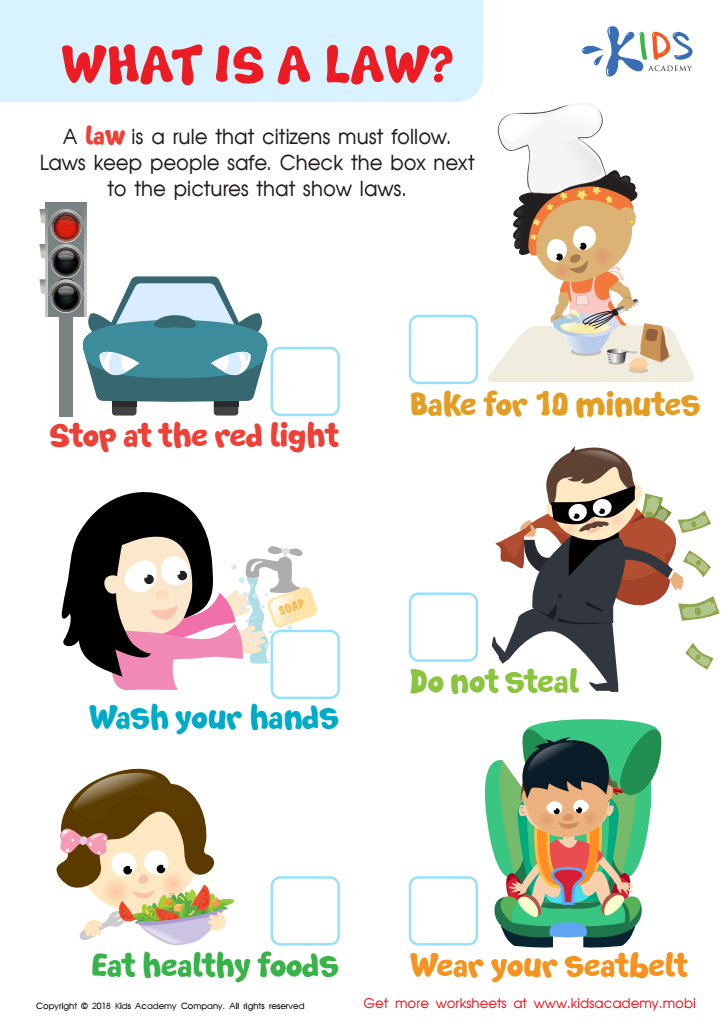

What is a Law? Worksheet
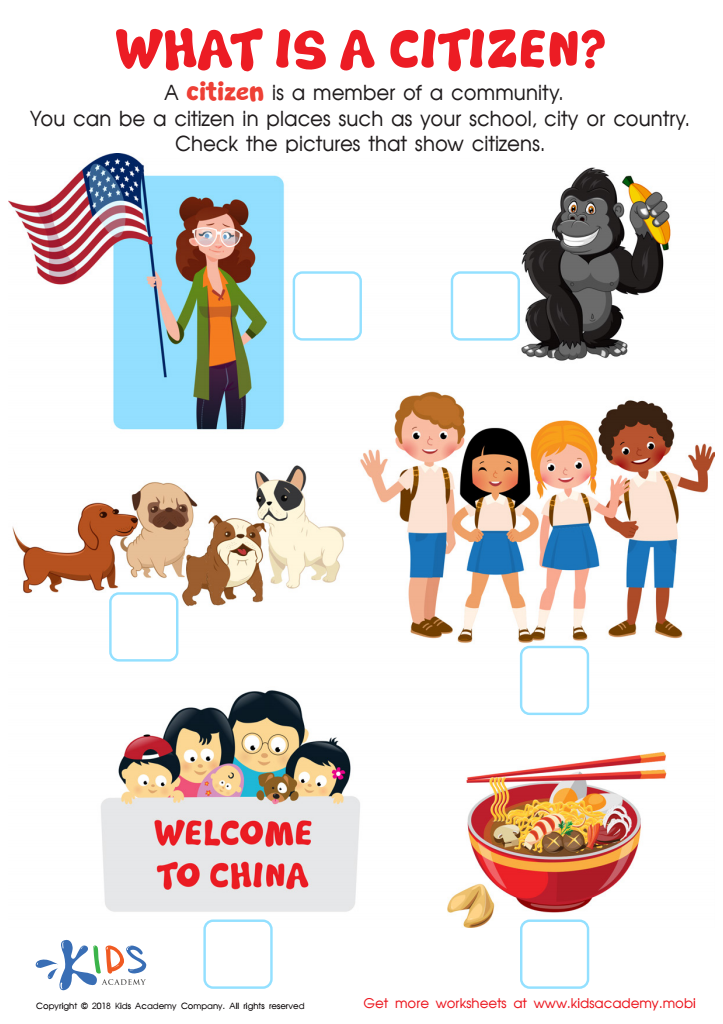

What is a Citizen? Worksheet
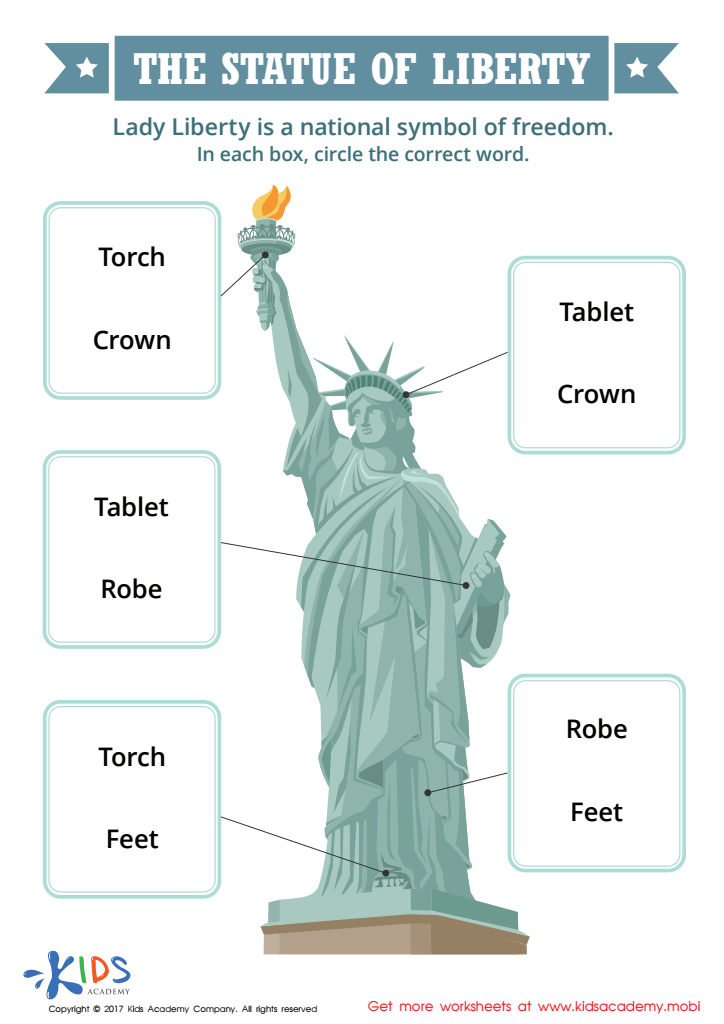

The Statue of Liberty Printable
Introducing governance and civics concepts to children aged 3-5 is fundamentally about planting the seeds of good citizenship from an early age. Even at such a young age, children start to grasp the basics of personal responsibility, teamwork, and empathy, which are crucial components of governance and civic life. Parents and teachers play a pivotal role in shaping these early understandings, setting the foundation for how children interact within their communities as they grow.
One key reason to engage young children with these ideas is that early experiences in sharing, fairness, and helping others directly translate into larger community values like justice and participation. Simple activities such as taking turns, voting on classroom decisions, or helping clean up teach children important lessons about democratic principles and collective responsibility.
Additionally, young children are naturally curious and capable of absorbing vast amounts of information. By introducing them to civics early, we help demystify the processes and institutions that govern society. This early introduction makes civics relatable and understandable, providing them with a framework they will consciously and subconsciously build on throughout their education and life.
Moreover, teaching these values nurtures empathy and active engagement, fostering a generation that’s thoughtful, informed, and inspired to contribute positively to society. Thus, parents and teachers should genuinely care about governance and civics education, recognizing it as critical for holistic child development and a healthier democracy.

 Assign to the classroom
Assign to the classroom






